The Banat village Asenovo near the town of Nikopol on the Danube has gained fame as a culinary destination, thanks to Maria Ivanova, secretary at the local chitalishte (community culture club) and indefatigable organizer of all kinds of initiatives aimed at preserving Banat culture. For example, she organizes a festival called “Banat gastronomical delights – the traditions of my village”, bringing together chefs from all corners of Bulgaria every year. The food she prepares with her own hands, following the old Banat recipes, has won many prizes at various events in Bulgaria and in other countries.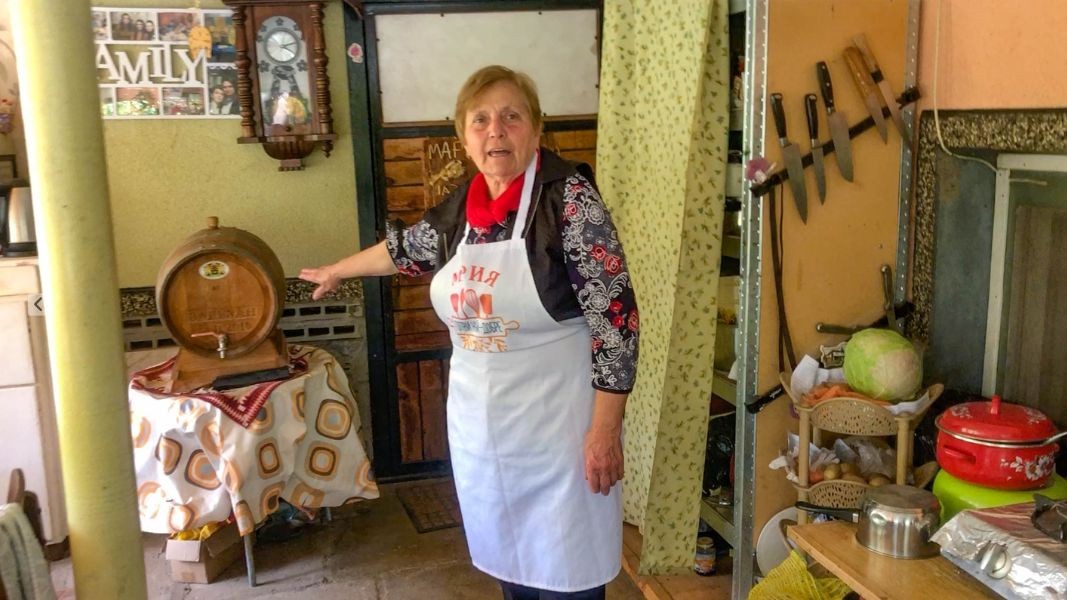
Who are the Banat Bulgarians? Find out more:
As the fame of Asenovo’s cuisine spreads, more and more tourists have been coming to the village – mostly foreigners, organized by travel agencies from Sofia. And Maria welcomes them with Banat gastronomical delights. But she also tells her guests about the culture and the history of her ancestors.
“Our Banat Bulgarians came back to Asenovo after living in the Austro-Hungarian empire for more than 200 years, having fled after the 1688 Chiprovtsi uprising,” Maria says. “But living in Europe has made their cuisine, their traditional costumes different. The food, the pastry, the smoked meat have set Asenovo apart from traditional Bulgarian cuisine. For example, at Easter people here make mottled kozunak (sweet Easter bread) out of white and red dough. Once, the old women said the red was like the blood of Jesus, and the white – like his body,” Maria explains. 
In the garden of her house in Asenovo, Maria lays out a long table laden with all kinds of goodies. The tourists come here to spend time chatting in the open air. And Maria is an inexhaustible fountain of recipes and stories:
“We welcome groups from the UK, Australia, Romania, Hungary, Greece… And of course, the food we offer them is invariably traditional,” Maria Ivanova says. “Many say they love the galushki - eggs and salt, boiled in salted broth, then strained, with paprika added, and served hot. But we make them together with the guests. Or we make the traditional salankareva pita together, made with ammonium bicarbonate, and with different kinds of fruit – grated apple, quince, or plum jam, for example.”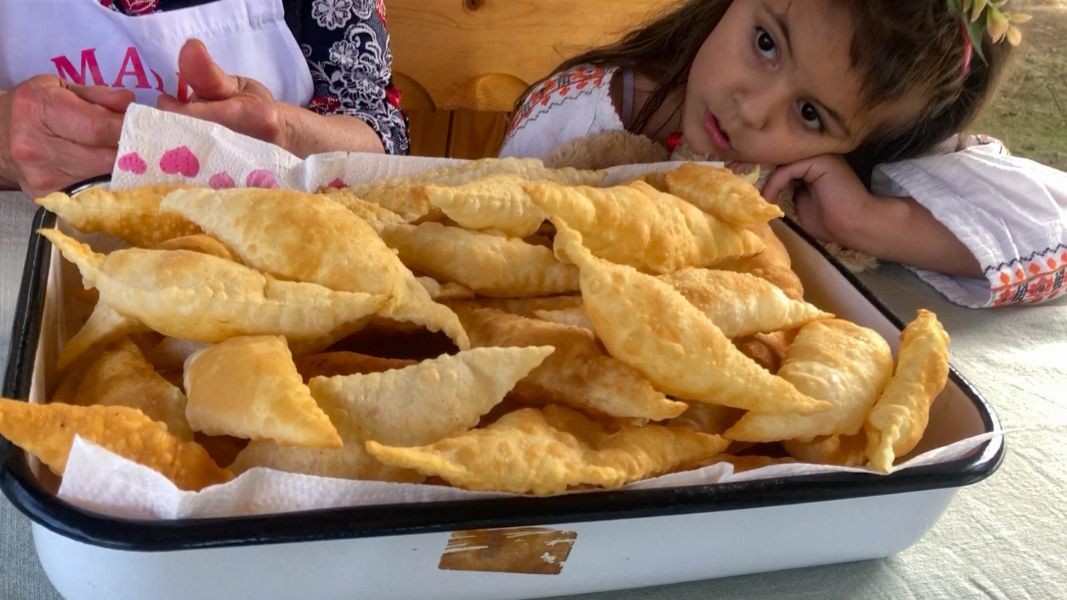
Treski is another recipe that is tasty and easy to make – dough mixed with one egg, some water, salt and vinegar, with two tablespoons of rakia so the oil won’t get absorbed into the dough, Maria explains. Potatoes, pork and lard, peppers and paprika take pride of place in Banat cuisine. 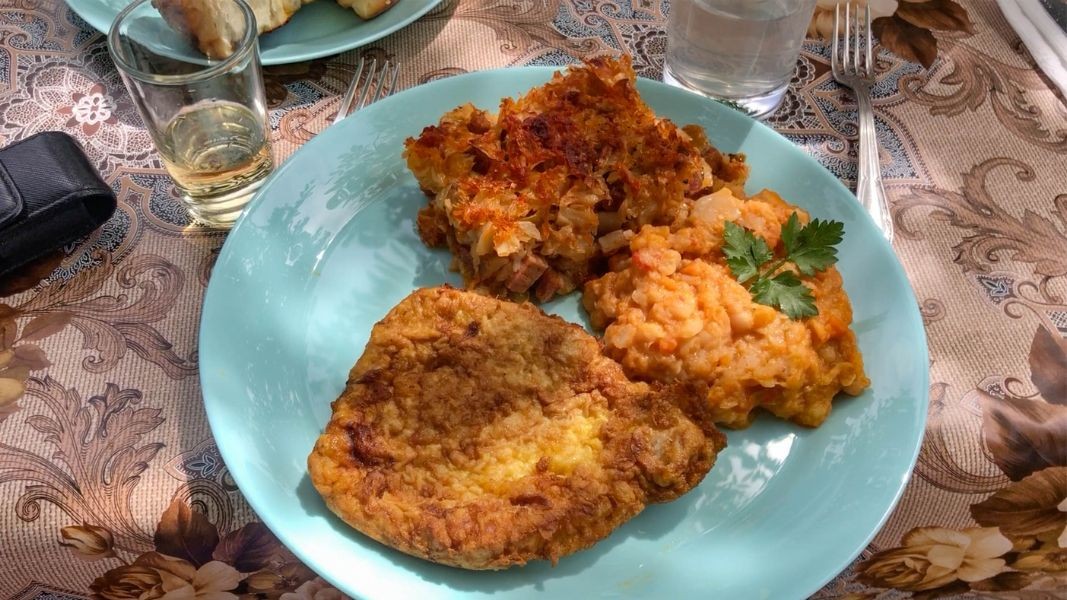
One very popular recipe is known as dripavi (ragged) pershore – chopped cabbage with smoked meat and salo, and a little bit of rice for soaking up the water from the cabbage while it is simmering, and a pinch of paprika. Smoked kulbusu is one more famed Banat delicacy – it is a species of pork sausage with different kinds of spices.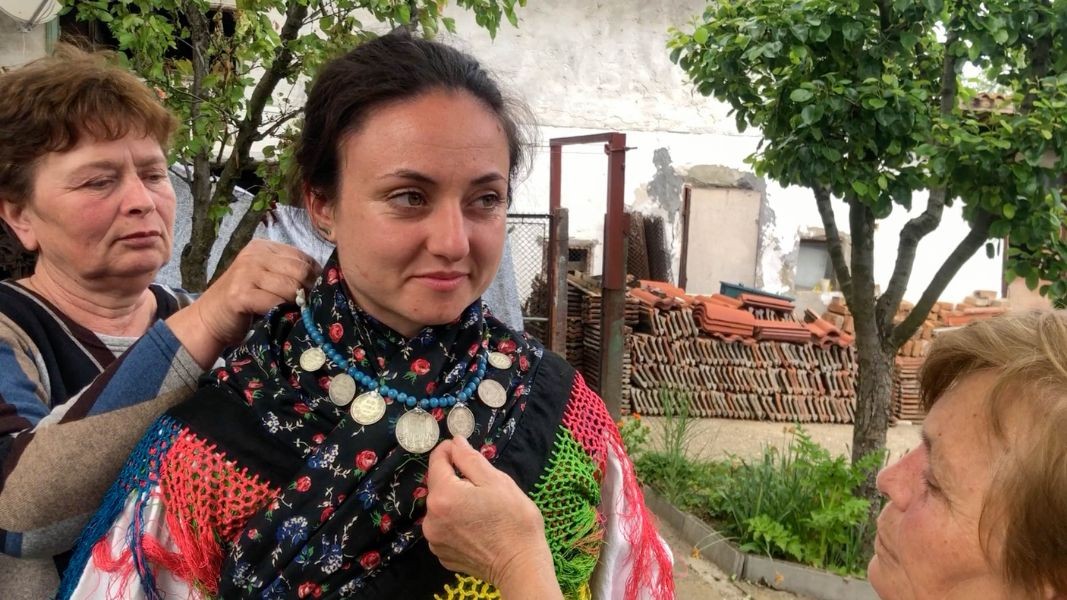
At Maria’s home, tourists also get to know the typical Banat folk costumes and can even try them on for a selfie. The typical women’s costumes from Asenovo are very ornamental, with big headscarves worn in specific ways. 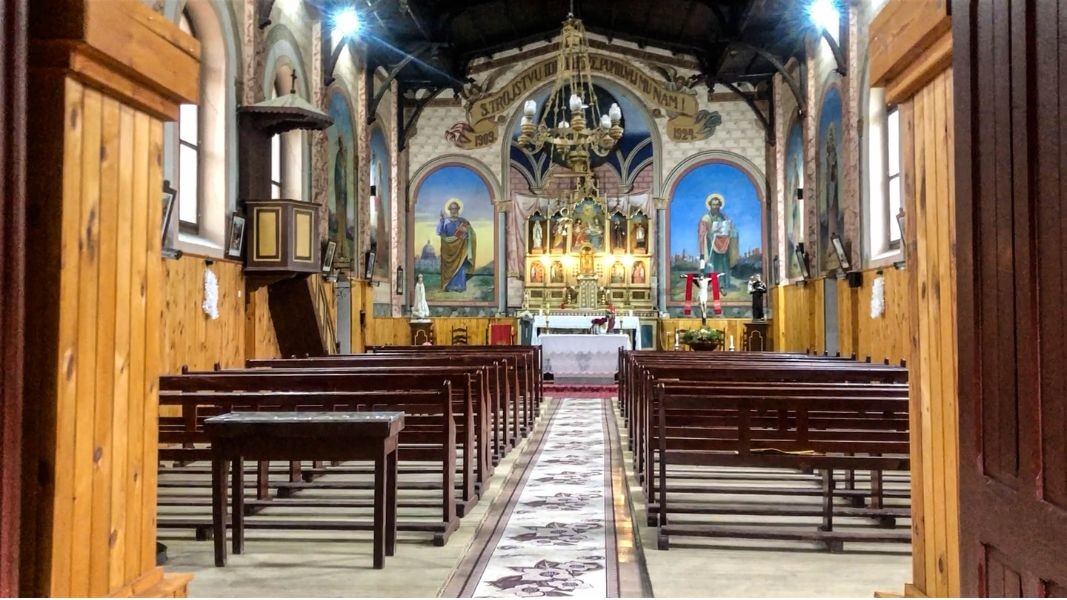
Finally, the guests can pay a visit to the Holy Trinity catholic church where a copy is kept of the icon of Holy Mother of God Chiprovska, which will be 100 years old next year.
Translated from the Bulgarian and posted by Milena Daynova
Photos: Veneta Nikolova
Students and teachers from two educational companies of the National Commerce and Banking High School won awards at the global business competition Youth Business Summit 2025 – US , organized by the US Headquarters of Educational Enterprises, the..
Is it possible that "Virtues and Religions" will be included in the curriculum and will be mandatory from 2026? This is a debate that has seen different points of view expressed in the last few weeks. "The introduction of mandatory..
A unique creative workshop "A Small Seed of Kindness" will open its doors on Palm Sunday, and its place is even more special - Garden "Inspiration" in the town of Bozhurishte near the Bulgarian capital. "I love coming here. Look at the smiles of..
The group cycling tour along the tourist route of the Black Sea Route Epic Tour 2025 started today . According to the extreme sports website 360mag.bg, a..
Cambridge Day 2025 - one of the leading events for English language teachers in Southeast Europe - takes place today at the Balkan Hotel in Sofia. For..
On 26 and 27 April, Sevlievo in Central Bulgaria is hosting the festival “Seme Balgarsko ”. For its 11 th edition, the organizers have a colourful..

+359 2 9336 661
